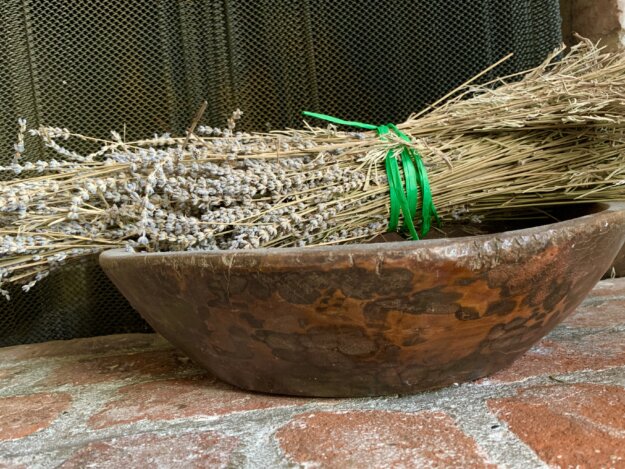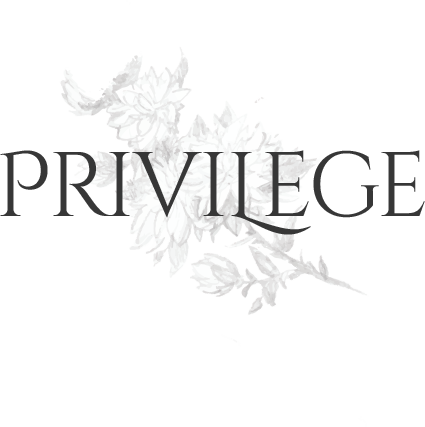
I don’t find my culture to be very good at mourning. Too many subjunctives. Other cultures, to my way of thinking, are better with loss.
What do I mean by my culture? Let’s call us Anglo-Americans, as I feel I’ve talked enough about WASPs to last a lifetime. What do I mean by we aren’t terribly good at it? Well, what was the last time you went to an Anglo-American funeral or memorial service and everyone shared a full expression of grief, howsoever they were moved? Perhaps my experience with buttoning-up is unique? Boy oh boy, I’d be glad to hear that.
Anyway, I’ve been thinking lately that we all may still be suffering from pandemic grief. Even when we lost no one to COVID. Maybe the business we started never opened its doors. Maybe our children lost almost an entire life experience of high school with friends, or college and independence. Maybe our best friend died of cancer and we never got to say goodbye.
I don’t mean I want to dress in black or white for the next three years. Nor do I feel that loss now defines life. I don’t need to write about this every week, or month, or even year. Lots of fun things still happen. I just wish we all had more common rituals, and more common language, for what we as creatures will inevitably experience. And what we’ve all been through.
For example, do the college graduates who didn’t get to graduate have a term for themselves? They deserve one. Is there a word for parents who have lost a child, perhaps the hardest loss of all although I am not the judge? What do we call the peoples who have been taken from, or are losing, their lands?
Where we have shared language we can talk in understanding, and what we can understand together we share, and what we share should become more bearable. Don’t get me wrong, I’ve ignored plenty of distress in my day, I just haven’t found that behavior terribly useful.
Loss isn’t an absence, it transforms. We carry those experiences we didn’t have, and those we have loved, with us. They become part of us. A collective howl in the moment, and a love and sorrow-filled ceremony every year in the remembrance, perhaps as the seasons shift, would not be–the Anglo-American crime above all others–inappropriate. To all the cultures who remember, thank you. May we all sit Shiva. Gracias a México, the history of Dia de los Muertes enlightens.
I want, more than anything else, to live in the fullness of my existence. I want that for everyone. (Which of course determines my politics, I want everyone to have an existence they don’t need to escape, but that’s not what I’m talking about this morning.) So the idea that we must “put something behind us” is maybe untrue. Should we maybe instead take it in?
If we don’t remember loss can we sufficiently cherish what we have, or the privilege of being alive? Dunno. I’m a fan of full-blown celebration too. Bring on the trombones.
This is not the time for the usual salute; I won’t wish you a happy weekend, only a peaceful one. All your comments are welcome. Also loss and happiness do not rule each other out, it’s not a natural law, in the fullness of time.

16 Responses
Yes, what are the words for those of us who saw a loved one out of this life on video chat? Those who had to end their lives without hugs or the presence of those who would have willingly crossed the country? Those spent caregivers who ended their watch alone instead of in the comforting presence of others? Those mourners at spare burials with only an officiant? The loss of a person is tragic, the loss of a community’s support compounds it.
And, since “loss and happiness do not rule each other out,” medical personnel came through. Attendants and spiritual counselors showed up. Friends and family called, emailed, took walks together six feet apart, video chatted, dropped food at the door. I’m one of the lucky ones, because loss has been accompanied by gratitude.
Thank you for such apt and moving words.
Maria, thank you for your beautiful words here. “The loss of a person is tragic, the loss of a community’s support compounds it.” I think maybe this post was for you. Or so that you could remind me what balm gratitude can be.
I’m so, so envious and respectful of the Navajo ways I’ve read about. And now I’m watching Dark Winds, a series about that tribe. If ever a group of people could define themselves by loss, it’s they. But so much of their practices and rituals involve the present, of honoring the beauty that surrounds them each day, while at the same time working on their “medicine”, their way of staying safe and protecting themselves for the future. Thank you so much for acknowledging our loss, Lisa, of any tribal or group way of seeing one another. In your own way, your blog helps with the process, you say, “See ? Here I am. Grateful to share with you what I’m learning”. And we are all richer through your generosity.
Ah, to me it feels like you are the generous one. I agree about Dark Winds, and have found the same cultural characteristics (but modern) to run throughout Reservation Dogs, on Hulu. Maybe the idea of ghosts and spirits can be seen as what we carry forward to be speaking to us in ways our regular old brain cannot.
In my opinion, everyone experienced loss while in the throws of Covid. We all share this loss. Individual experiences are different but the loss remains. How individuals deal with loss is probably unique to each person.
We might not have a common language to talk about the loss. That said, there is a void that we each live with.
Grief is aptly defined as loving someone that can not love you back. We do learn to live with the loss of a loved one and it does wane over time.
Susan, I had never heard this, “Grief is aptly defined as loving someone that can not love you back.” I find it to be a generous, expansive definition. I wonder how differently we all respond, or how individually. I truly do not know. Thank you.
Having had the privilege of being with my parents when they died, I cannot imagine how hard it must have been to say goodbye to a loved one via a video call.
My church each year on or near All Saints Day (November 1) reads the name of all members and other loved ones who died during the past year and rings a deep-voiced bell after each name. I found this collective recognition of loss immensely moving.
Yes, being with the people you love when they go, if not in wartime or disaster I guess, is a privilege. I love what your church does. Here in California, the Los Angeles Times is running a lot of articles about Dia de los Muertos. Maybe we are, as a country, surfacing rituals that will eventually grow and be shared.
I grew up Catholic and was immersed in grieving rituals and traditions. I spent lots of time in line with parents and grandparents at wakes where people chatted with each other and then spoke to family members of the departed before communal prayers (like the rosary) were said. Funerals were rich with ritual including special prayers and music typically followed by luncheons or gatherings with food and drink. As a member of the choir in junior high, I sang at requiem Masses for elderly parishioners at least twice a week. If anyone in your family died, you were showered with food (casseroles, briscuit, pastries, cakes, etc.)and tangible signs of support. I believe this set me up to understand death as a pretty regular part of life where mourning was critical and essential to the well being of all members of the community. I will admit that the online funerals I attended during COVID were not nearly as comforting as those I attend in person.
Long winded way of saying I simply didn’t know another way of grieving or coping with loss, and, as an adult, have come to realize the benefits of being able to rely on proscribed methods of letting someone go and keeping the memory of them close at heart.
“the benefits of being able to rely on proscribed methods of letting someone go and keeping the memory of them close at heart.” Yes. And the Catholic traditions, at least the Irish Catholic traditions I came into contact with, were very strong and meaningful. I love that the choir sang as part of remembrance.
Your words touched me, and I know you know, having lost a dear friend . My beloved died six months ago, and I come from a similar tradition of stiff-upper-lip. My dearest friends did their absolute best the first few months, but I’m very aware that the time has now come for me to stop breaking down and showing my sorrow. I know in the Jewish faith mourning is given a year, but that is not my world. That it all began during the pandemic made my beloved’s decline seem out of sync, except that it was the entire point for us. All loss brings grief.
Jadie, I am so sorry your beloved is gone. This is exactly what I mean. Six months feels like a short time in which to be expected to handle your grief on your own. I hope can you find, or they find you, some connections where that won’t be expected of you. Sending you a hug, because sometimes the upper lip be damned.
A dear friend died not long ago. He was well-known in the community, having been a college professor for many years. He was also well loved by many people who miss him terribly but he gave us a great gift shortly before death: his daughters asked him how he felt. He replied, “Things are looking up. I’m busting out of here!”
Yes, I grieve losing him but his attitude, even at the very end, is comforting.
Some people’s spirit is just irrepressible:). How wonderful. I’m sorry he’s gone.
I feel my own grief and I also feel a huge sense of collective grief right now. So man sad, horrible things, but our grief is overshadowed by anger, which seems easier to express than grief.
Beautiful post Lisa. As always, I read it a few times over the weekend. On Saturday mornings, I always wake up with the thought “Oh, Lisa’s going to post today” – so even when I don’t comment, please know how much you are admired and appreciated, for you beautiful writing about hard subjects. xoxo
Thank you. It is a collective grief, and I think for many people anger feels safer than sorrow. And I want you never to feel obligated to comment. Life goes on, which is good, and we all have plenty of obligations. Thank you for being here so faithfully, xoxox